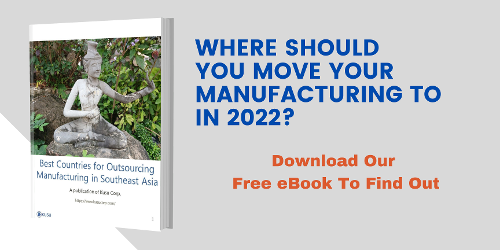The country with the largest manufacturing of semiconductor chips, Taiwan, is an important partner...
How Friend-Shoring Impacts China-US Relations
Simmering trade disputes between the US and China burst onto the surface in 2018. As a result, businesses big and small were affected. Production and manufacturing were especially affected due to the sudden shortage of and/or rise in price of commodities.
Singapore’s Senior Minister Tharman Shanmugaratnam and the US’ Secretary of Commerce Gina Raimondo spoke at length about the matter during an online dialogue reported on by the Straits Times.
Both the Minister and the Secretary agreed that effects on production and manufacturing were not acceptable. Going forward, promoting “friend-shoring” and strengthening domestic manufacturing would be necessary steps for both countries to prevent a repeat of events.
However, while Secretary Raimando cautioned against China and its trade practices, Minister Tharman subtly rebuffed Secretary Raimando, cautioning against the possibility of greater trade protectionism. These are the issues we will be exploring today.
Friend-Shoring and Domestic Manufacturing
Simply put, “friend-shoring” is a strategy which promotes an integrated supply chain built around shared values among like-minded countries.
Hence, the “friend” in “friend-shoring.” Key values include greater cooperation, transparency, and intellectual property protection.
Secretary Raimando especially emphasised agreements on supply-chain resilience principles, sharing best practices, identifying diverse sources of supply and coordinating investment.
In this regard, Secretary Raimando highlighted the US-Singapore relationship as an example of what friend-shoring could look like.
As it stands, the US is Singapore’s largest investor and its second-largest trade partner. The two countries also just signed a memorandum further strengthening investment and trade relations.
Secretary Raimando also emphasised the need for a stronger domestic manufacturing base. Minister Tharman seconded the Secretary’s ideas. He argued this would be key to a more flexible manufacturing sector and a more resilient global supply chain.
He also adds how crucial it is that these bases and, more broadly, these economies, be driven by technological advances, highlighting Singapore’s new digital economy agreements with Australia, New Zealand, and Chile.
"That's what every responsible government has to do. Find ways of opening up internationally but double down on the right domestic social and economic strategies to preserve inclusiveness and ensure that you have got that broad base of good jobs that are being created.”
Protectionism and the China Issue
However, Minister Tharman stresses that while the development of the domestic economy is crucial, the last thing the global economy needs is a return to protectionism.
He believes that this shift is, again, about strengthening and ensuring the flexibility of supply chains. It is certainly not about a return to protectionist and discriminatory trade practices. Secretary Raimando was, nonetheless, not shy to voice the US’ disfavour towards China.
She highlighted the US’ general distrust towards Chinese trade practices and promoted the US’ Indo-Pacific economic framework. This framework is, in fact, where the friend-shoring concept originally came from.
The Secretary also referenced the US-EU agreement on aluminium and steel tariffs, and the US-EU Trade and Technology Council’s progress. Both served as a means to limit excessive inflows of Chinese goods and commodities.
Minister Tharman emphasised that Singapore and ASEAN as a whole refused to be pitted into an either-or-situation. “We've got to try and mitigate as much as we can the risk of bifurcation of supply chains and of technology standards."
What It Means For Your Company
“[Minister Tharman] believes that it is possible to diversify supply chains for better risk management, remain an open economy while catering good jobs and, at the same time, avoid bifurcation of the world into rival camps of trade and technology.”
The above quote sums up the dialogue’s discussion best. Ideals laid out by Secretary Raimando and especially Minister Tharman could be the way to create a stronger global supply chain. Emphasis on the “global.”
If you and your company are looking to diversify existing supply chains, and if Minister Tharman’s words are anything to go by, we here at Kusu believe Singapore and Southeast Asia as a whole are the prime destinations.
With strong trade relations with both the US and China, with the fastest growing economies, and with highly capable, tech-driven work forces, outsourcing to Southeast Asia and incorporating Southeast Asia into your supply chains is the way to go.
We are ready and dedicated to helping you with any and all Southeast Asia outsourcing or manufacturing needs you or your company may have. Kusu can and will help.
-1.jpg?width=146&height=50&name=Kusu%20(1)-1.jpg)




